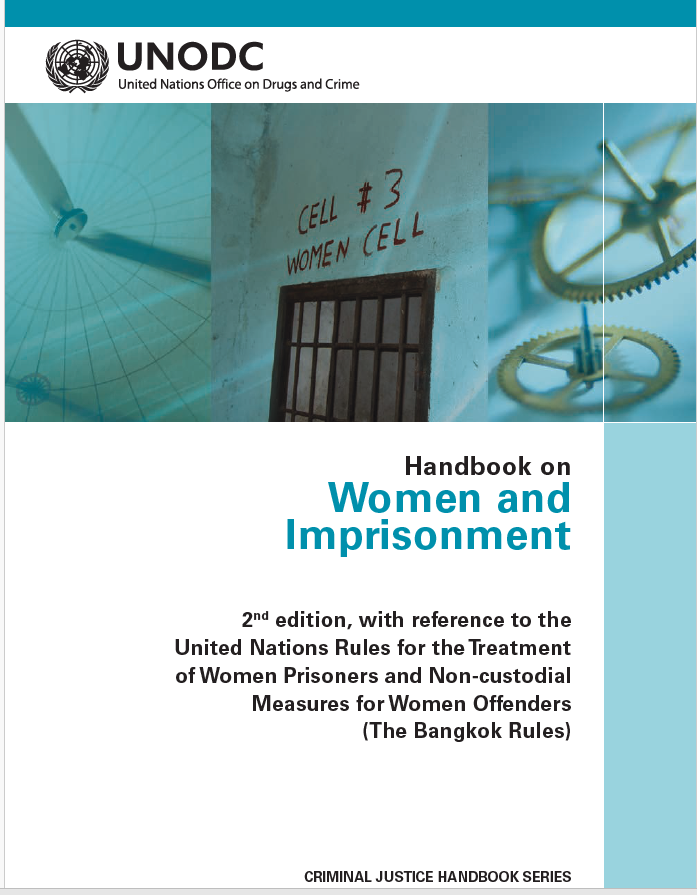Women represent a rapidly growing proportion of prison populations worldwide; yet their distinctive needs and circumstances have historically been overlooked in criminal justice systems designed primarily around male offenders.
This handbook addresses a critical gap in international guidance by providing comprehensive and practical recommendations for policymakers, prison administrators, and criminal justice professionals working to ensure humane and effective treatment of women in detention.
It draws on the United Nations Rules for the Treatment of Women Prisoners and Non-custodial Measures for Women Offenders (The Bangkok Rules), adopted in 2010.
This resource examines the gender-specific challenges women face throughout the criminal justice process, from arrest and pretrial detention through imprisonment and post-release reintegration. It also provides evidence-based guidance on gender-sensitive prison management, health care provision, family contact maintenance, and legislative reforms to reduce unnecessary imprisonment of women.
By highlighting both the harmful effects of incarceration on women and children and the effectiveness of community-based alternatives, this handbook aims to transform how criminal justice systems respond to women offenders while promoting approaches that are both more humane and effective in supporting successful social reintegration.

